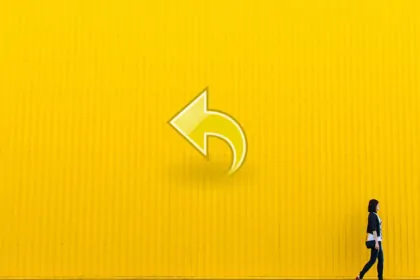If a trademark is not used, it is revoked after a period of five years. But can the owner of an unused trademark file an action for infringement after revocation of his trademark for an infringement that occurred within this five-year period? Yes, the Advocate General of the ECJ ruled today.
 The question was referred by the French court (Cour de cassation) in the Cooper International Spirits LLC case. The trade mark proprietor claimed that his trade mark had been infringed during the five-year period. He brought an infringement action – but only after his allegedly infringed trademark had been revoked and declared revocable because it had not been put to genuine use.
The question was referred by the French court (Cour de cassation) in the Cooper International Spirits LLC case. The trade mark proprietor claimed that his trade mark had been infringed during the five-year period. He brought an infringement action – but only after his allegedly infringed trademark had been revoked and declared revocable because it had not been put to genuine use.
This complicates the situation, since genuine use of a trademark is provided for both in the directives harmonising the trade mark rights of the Member States and in the regulations on the European Union trade mark for the Union trade marks and the national trademarks in the Union. It is a condition for trade mark protection and therefore a trade mark is liable to revocation under Article 12(1) of Directive 2008/95/EC if it has not been used for five years.
Infringement action possible retroactively?
In addition, the infringement action was asserted retroactively. However, if national law does not retroactively influence the effects of lapse from the date of filing of the trade mark application or from the date of its registration, it follows that infringement proceedings can also be pursued retroactively, the Advocate General argued in his Opinion today.
It is true that rights can only be asserted for trademarks which have actually been used, the Advocate General explained. Within the five-year period in which the alleged trademark infringement took place, however, the trademark owner had an exclusive right to the trademark.
Case law of the ECJ
The Advocate General also referred to the Länsförsäkringar judgment (EU:C:2016:998) of December 2016, in which the ECJ held that the provisions on revocation grant the proprietor a period in which to begin actual use of his trade mark in which he can object to and claim compensation for the damage caused by his monopoly on the use of that trade mark even without commercial exploitation of the trade mark against infringements by third parties. However, the ECJ ruled at the time that this right could be impaired if a trademark owner had not yet begun to make genuine use of his trademark.
Today, the Advocate General interpreted the ECJ’s ruling in such a way that the ECJ referred to acts of infringement which were committed only after the expiry of the five-year period – and not during this five-year period as in the present case.
Advocate General affirms infringement action for trademark infringement within five-year period
The Advocate General therefore answered the question referred in his reply by recommending that the European Court interpret Article 5(1)(b), (10) and (12) of Directive 2008/95/EC in such a way that an action for infringement of a trade mark during the five-year period is also retroactive and therefore admissible after revocation of the trade mark.
It remains to be seen whether the ECJ will follow the public prosecutor in this assessment. Should the European Court of Justice decide otherwise, the Advocate General explained today that he proposed the recognition of alternative legal remedies, such as an action for unfair competition.
Do you need assistance in trademark litigation? Or is your trademark being challenged?
Our attorneys have many years of expertise in trademark law as well as in the entire field of intellectual property and are entitled to represent you before any court in Germany as well as internationally.
If you are interested, please contact us.
Sources:
Opinion of General Advocate, EU:C:2019:755
Image:
own Collage of StockSnap /pixabay.com / CCO License und OpenIcons /pixabay.com / CCO License








Leave a Reply